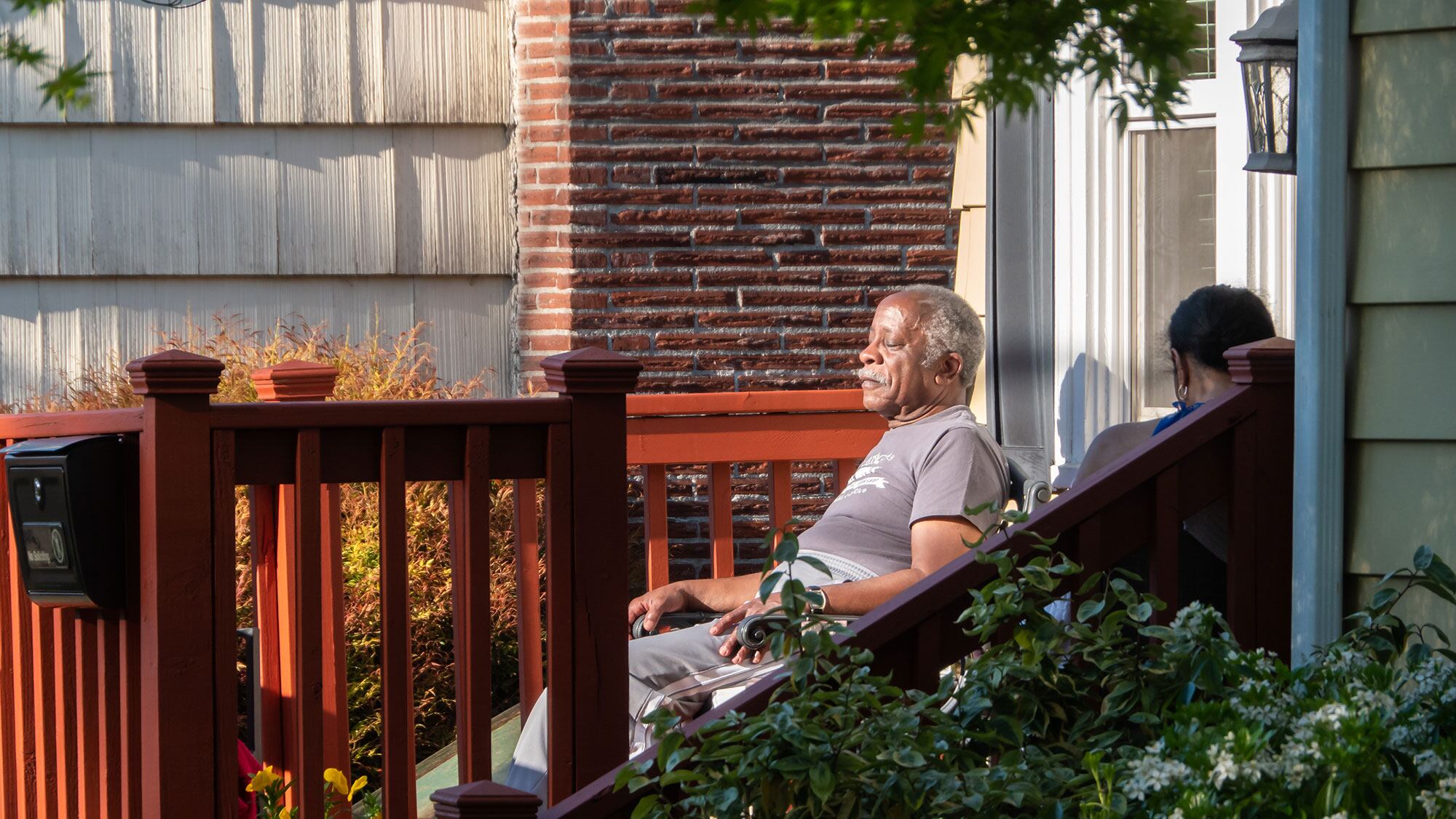On April 28, City Commissioner Chloe Eudaly gave Portlanders some space.
She announced the city would close selected residential streets to all but local traffic, allowing people to bike and walk while maintaining 6 feet distance from each other. This week, Portland transportation officials will begin installing more than 80 barrels at intersections across the city, in an attempt to divert cars away from some neighborhood streets.
"Our streets belong to all of us," said Eudaly in a statement, "and these improvements will allow us to safely walk, bike and roll through the city."
The decision was a reversal of City Hall's initial skepticism of an idea that emerged from Oakland, Calif. (In mid-April, Portland officials said car-free streets would encourage large groups of people to gather, spreading COVID-19.)
It's also an acknowledgement that even law-abiding Portlanders cannot spend a summer indoors without some pressure release valve.
Michael Andersen, a senior researcher at Sightline Institute, says the push to keep people in their backyards ignores how many Portlanders live in apartments or far from parks.
"The official guidelines don't account for the fact that not everybody has a yard or a cul-de-sac," Andersen says. "I cannot imagine what it must be like for a single parent trying to maintain any semblance of distancing. I just think our public plans need to acknowledge that. Staying at home is just not an option for hundreds of thousands of us, and we shouldn't be talking like it is."
On May 5, Gov. Kate Brown further eased the civic claustrophobia, by opening state parks and recreation areas for day use. She followed the lead of Washington Gov. Jay Inslee, just as Eudaly used a model pioneered by Oakland.
So what other ideas could Portland steal to access a little more sunshine this summer? Here are three ideas.
The idea: Turn golf courses into city parks.
Who's trying it: San Francisco opened the Presidio Golf Course for strolling after the Bay Area's shelter-in-place orders banned golfing. Photos of people picnicking on the fairways went viral; the rolling greens offered plenty of room for parties to remain well apart. Now that orders are relaxed, golf can resume—much to the dismay of San Franciscans who will have a good walk spoiled. "It should be open to the general public at least until the end of the pandemic," schoolteacher Mouna Harifi told the San Francisco Chronicle. "Golfers should be patient."
What Portland officials say: Portland's golf courses never closed. The financial struggles of the city's five municipal golf courses were the subject of a city audit last year—and have led some Portlanders to question whether revenue requirements are the reason city courses are crowded. Portland Parks & Recreation spokesman Mark Ross says that's not the case. "Revenue is not a factor," Ross tells WW. "Portland Parks golf courses are open at this time because Gov. Brown's executive order allowed golf courses to remain open." Mayor Ted Wheeler's office didn't comment by press deadlines.
The idea: Turn city streets into al fresco dining plazas.
Who's trying it: A city councilor near Vancouver, B.C., is championing a proposal to turn the city's public plazas, and some of its downtown streets, into de facto patios for restaurants. That city's business leaders see it as potential salvation for restaurants that would otherwise shutter. "If we don't do it, we're going to see a landscape that's obliterated by the pandemic," Charles Gauthier, executive director of the Downtown Vancouver Business Improvement Association, told The Globe and Mail.
What Portland officials say: Eudaly likes the idea. The policy her office has launched already dedicates street space for people to line up for takeout, and her office says she's planning more. "Commissioner Eudaly is very interested in using the public right of way to expand outdoor dining for Portland's restaurants," says her spokeswoman Margaux Weeke. Portland Business Alliance President Andrew Hoan says his members also have "a willingness to support rethinking how commerce continues."
The idea: Issue hiking permits for the Columbia River Gorge.
Who's trying it: We can't find any recreation area that's managing pandemic crowds with an advance reservation system. But the U.S. Forest Service already limits hikers in popular spots: You have to get a permit to hike Dog Mountain during wildflower season. The Gorge was flooded by Portlanders in the early days of the pandemic—the traffic jams led the Forest Service to shut trails down. But making a reservation for the woods? That sounds like an elegant solution.
What Portland officials say: Rachel Pawlitz, the spokeswoman for the Columbia River Gorge Natural Scenic Area, says the idea of issuing permits for popular spots like Multnomah Falls and the Cape Horn Trail is being discussed.
